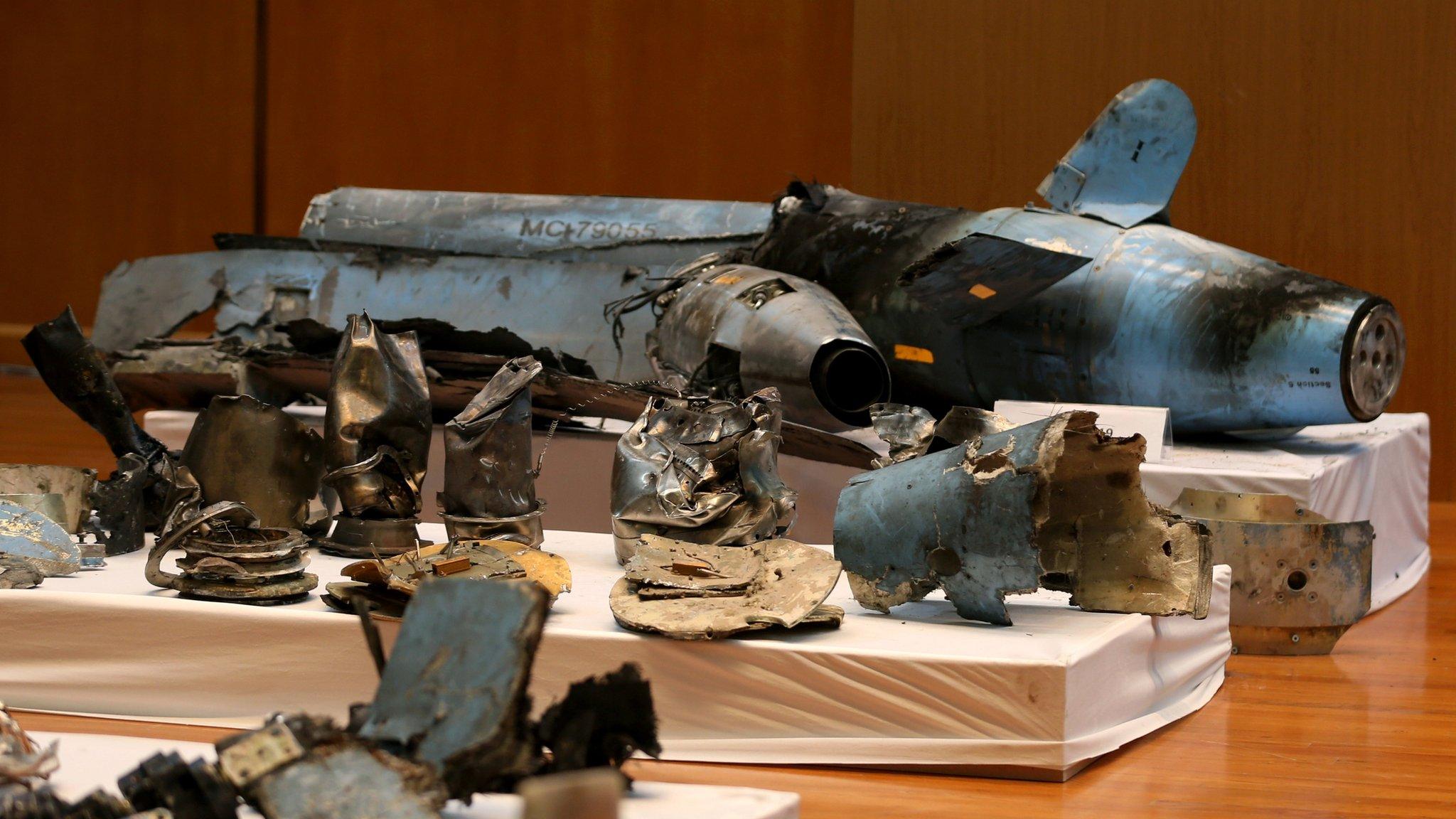Saudi Arabia says military response to Iran is possible
- Published
Saudi Foreign Minister Adel al-Jubeir accuses Iran of a "rampage of death and destruction"
Saudi Arabia's minister of state for foreign affairs has said all options, including a military response, are open after attacks on two oil facilities, which it has blamed on Iran.
While Saudi Arabia wanted to avoid war and escalation, Iran would be held accountable for the drone and missile strikes, Adel al-Jubeir told the BBC.
A US assessment claiming Iran was behind the attacks was backed up by the UK, France and Germany this week.
Iran has denied any involvement.
The Iran-aligned rebel Houthi movement in Yemen, which is fighting a Saudi-led coalition in the country's civil war, has said it launched drones at the facilities.
But Saudi officials say the range, scale and complexity of the attacks exceeded the capabilities of the Houthis.
Take a look at how much damage the attacks did to the Khurais facility in Saudi Arabia
Speaking to the BBC Chief International Correspondent Lyse Doucet at the UN General Assembly in New York, Mr Jubeir said: "Everybody's trying to avoid war and everybody's trying to avoid escalation. So we will look at all the options that are available to us. We will make a decision at the right time."
He added: "Appeasement has not worked with Iran in the past, appeasement will not work with Iran in the future."
The US re-imposed economic sanctions against Iran last year after abandoning a 2015 nuclear deal, and in May said it would attempt to force all countries to stop buying Iranian oil and put pressure on Iran to negotiate a new nuclear accord.
On Wednesday, Secretary of State Mike Pompeo told reporters at the UN that the US wanted "a peaceful resolution with the Islamic Republic of Iran".
"In the end, it'll be up to the Iranians to make that decision, or whether they'll choose violence and hate," he added.
French President Emmanuel Macron had attempted to broker an historic meeting between Iranian President Hassan Rouhani and US President Donald Trump.
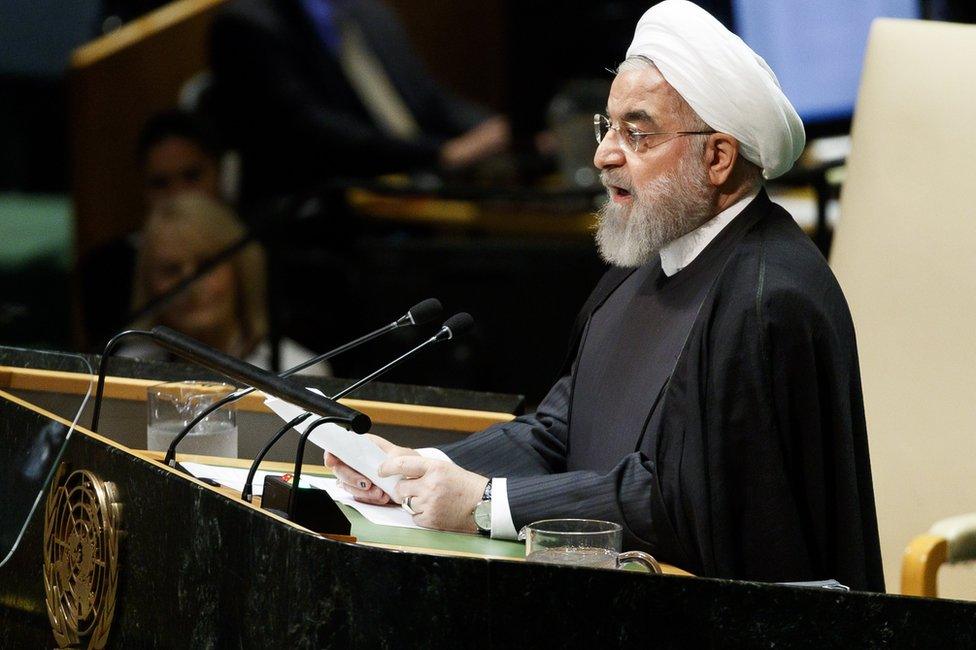
Iranian president Hassan Rouhani has refused to meet Donald Trump while sanctions are being imposed
But Mr Rouhani told delegates at the UN that he refused to meet Mr Trump while the country's punishing economic sanctions were in place. He cast doubt on US intentions, referring to Mr Pompeo's boast last year that it had imposed "the strongest sanctions in history" on Iran.
"How can someone believe them when the silent killing of a great nation, and pressure on the lives of 83 million Iranians, especially women and children, are welcomed by American government officials?" he said. "The Iranian nation will never, ever forget and forgive these crimes and these criminals."
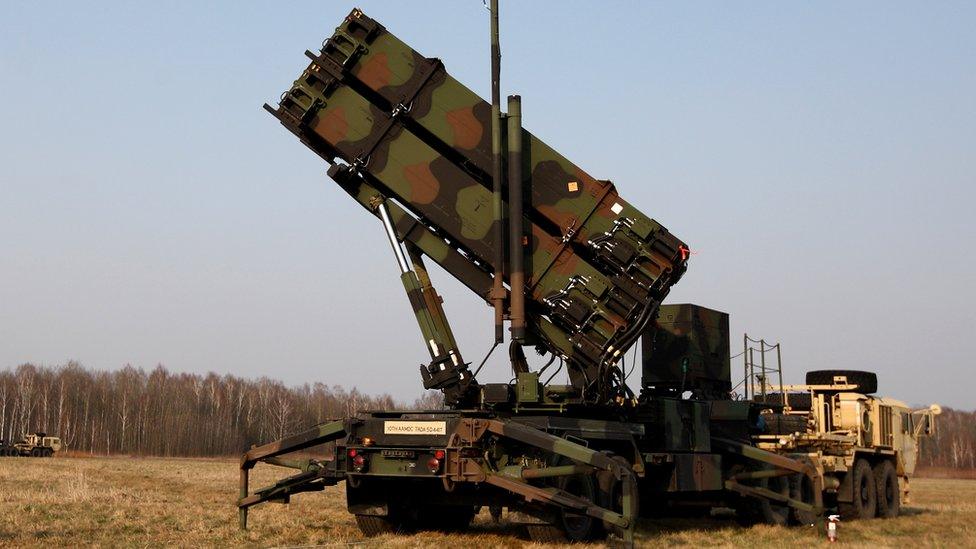
The US Patriot missile defence system (stock photo)
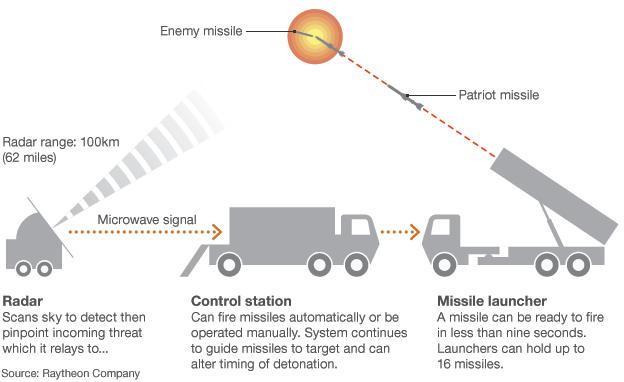
He also dismissed the idea of a photo with President Trump, who has staged several photo opportunities with North Korean leader Kim Jong-un - including one apparently spontaneous handshake in the Korean peninsula's Demilitarised Zone (DMZ).
"Memento photos are the final stage of negotiations, not the first one," Mr Rouhani said.
The US announced on Thursday that - as part of its "commitment... to stability" in the region - it would be sending 200 "support personnel," four radars and a battery of Patriot missiles to Saudi Arabia to bolster the country's defences.
Two more Patriot batteries and a ballistic missile defence system were also on standby for deployment, a Pentagon statement added., external
- Published20 September 2019
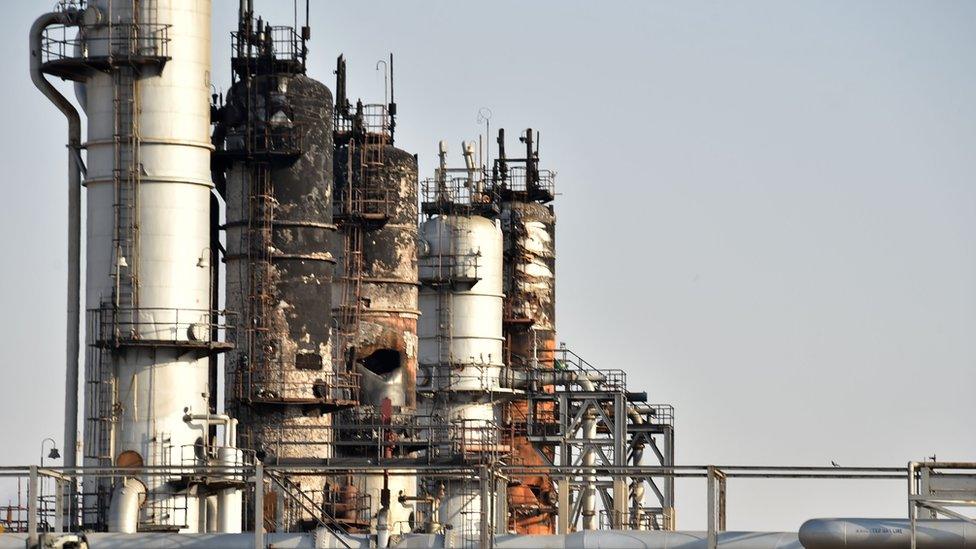
- Published19 September 2019
- Published20 September 2019
